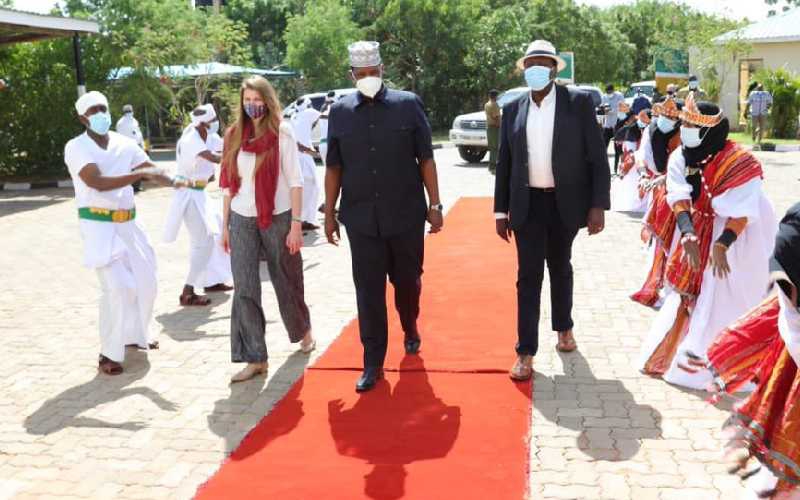×
The Standard e-Paper
Stay Informed, Even Offline

British High Commissioner to Kenya Jane Marriott when she was accompanied to Mandera County by Devolution CS Eugene Wamalwa.
I stood with the police commander at Mandera’s border post. A few hundred metres to my left across Dawa River was Ethiopia. In front of me, just beyond the border fence, was Somalia. This community, like those in Wajir and Garissa – that I have also visited in Kenya’s North East over the past few months – sit at the heart of a vibrant, but insecure region.